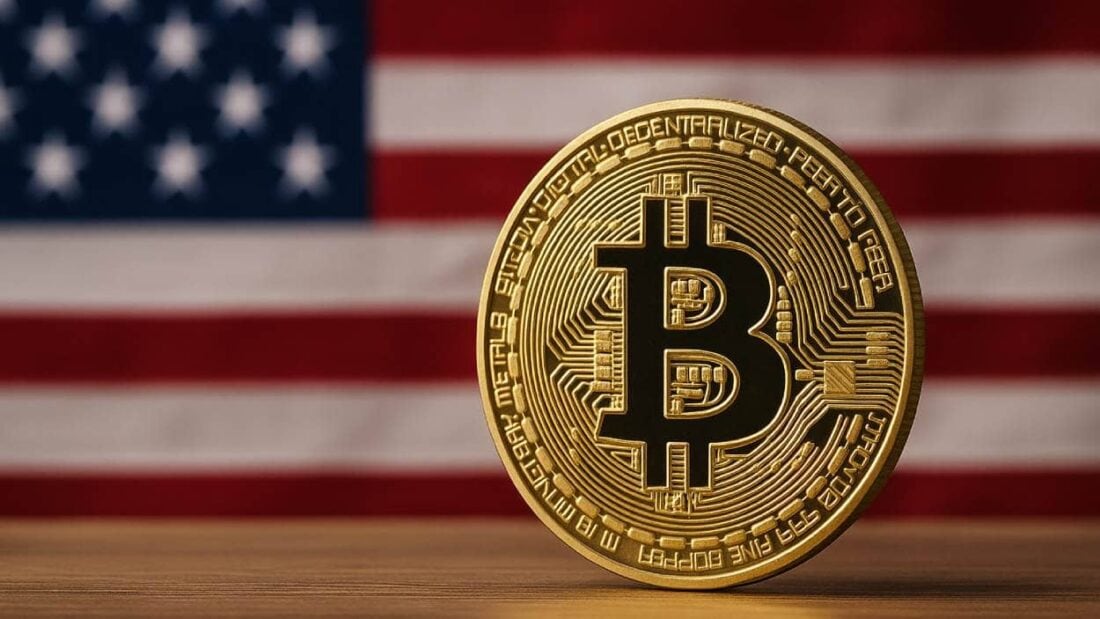The US government is not just holding Bitcoin. It is actively planning to grow its stash and take a leading role in global crypto adoption.
Key Takeaways
- US Treasury Secretary Scott Bessent confirmed the government has no plans to sell its $17 billion in Bitcoin holdings and intends to accumulate more.
- The discussion took place during a private dinner with CleanSpark Chairman Matthew Schultz and Senate Banking Chairman Tim Scott.
- The meeting covered topics including the crypto market structure bill, the Strategic Bitcoin Reserve, and even the next Federal Reserve Chairman.
- President Trump has issued an executive order to build a strategic Bitcoin reserve, aiming to make the US a Bitcoin superpower.
What Happened?
In a private dinner in Washington DC, US Treasury Secretary Scott Bessent reportedly confirmed that the government plans to expand its Bitcoin holdings beyond the current $17 billion. He was joined by Senate Banking Committee Chairman Tim Scott and CleanSpark CEO Matthew Schultz, who shared the meeting details on social media.
The conversation revealed that the US is now pursuing a long-term Bitcoin strategy that includes building out a Strategic Bitcoin Reserve, signaling stronger alignment between federal policymakers and the cryptocurrency sector.
JUST IN: TREASURY SECRETARY BESSENT REPORTEDLY CONFIRMS US PLANS TO BUY MORE #BITCOIN AT PRIVATE DINNER
— The Bitcoin Historian (@pete_rizzo_) October 9, 2025
AMERICA BUYING 1 MILLION BTC. IT’S COMING🔥 pic.twitter.com/4bINTdZOfA
Private Dinner Reveals Strategic Intent
The closed-door meeting included top officials from the Treasury and Senate, as well as Matthew Schultz, a prominent figure in the Bitcoin mining industry. Schultz said the discussion touched on critical issues:
- Strategic Bitcoin Reserve buildup.
- Crypto market structure bill for regulatory clarity.
- Federal Reserve leadership.
- Sovereign AI policies.
- Energy and land access for crypto infrastructure.
Schultz emphasized that only Bitcoin and AI were on the agenda and no representatives from other crypto sectors were present. This reflects a narrower, focused approach on Bitcoin as the centerpiece of US digital asset policy.
Trump’s Executive Order and the Bitcoin Superpower Vision
Earlier this year, President Donald Trump signed an executive order mandating the formation of a US Strategic Bitcoin Reserve. The order requires that the reserve be stocked with forfeited coins and calls for budget-neutral ways to accumulate more, ensuring no added burden on taxpayers.
Trump has openly declared his administration’s goal to make the US the “Bitcoin superpower” and the “crypto capital of the world.” His administration’s proactive stance includes engaging with miners, regulators, and lawmakers to build infrastructure that supports Bitcoin’s growth within the national economy.
No Selling, Only Buying
Bessent reportedly reiterated the US government’s plan to retain all of its current Bitcoin holdings. These assets, primarily seized through law enforcement actions, are being treated as strategic national resources. The Treasury’s position signals a shift away from liquidating crypto assets and toward long-term reserve accumulation.
This also reflects the growing belief that Bitcoin could play a future role in sovereign financial policy, potentially acting as a hedge or complement to traditional reserves like gold.
Regulation and Market Structure
Another major topic at the dinner was the crypto market structure bill, which aims to clarify the regulatory landscape for digital assets. If passed, the bill would bring stability and predictability to the sector, making the US more attractive for crypto investment and innovation.
CleanSpark’s Schultz said the willingness of top government officials to engage with mining leaders reflects a deeper institutional involvement in shaping crypto policy.
CoinLaw’s Takeaway
In my experience covering crypto policy, this is the most assertive move yet by a government toward embracing Bitcoin as a strategic asset. What stood out to me is how deliberate and structured the US approach is becoming. Rather than treating Bitcoin as a speculative asset or a legal headache, officials are viewing it as a core piece of economic policy.
I found it particularly powerful that discussions also included long-term planning around land, power, and AI. It shows that the government is not thinking short term. They are building for a digital future, with Bitcoin right at the center. This could be a game-changer for how nations compete economically in the coming decades.


































































